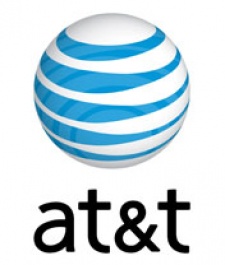It's a deal that's been subject to something approaching rabid speculation, but Apple has finally put a date on iPhone's exclusivity agreement with AT&T: it will run until sometime in 2012.
Although such specifics weren't made public by Apple itself, those snooping at Engadget have uncovered the details of the deal with AT&T via a statement made by Apple's lawyers.
Legally speaking
Said document was designed as a response to legal claims that consumers were unaware at iPhone's launch that their handsets would be locked off to other networks beyond the length of their contracts.
In the retort, Apple's lawyers referred to an article published by USA Today back in 2007 that claimed that the deal between the firm and AT&T would last five years.
Never backed by Apple at the time, the fact its lawyers have since used the piece to form part of their defence has essentially confirmed the length of the deal, almost as an afterthought.
As a result, it's now known that AT&T's hold over iPhone has around two years left to run, meaning rival networks most notably US market leader Verizon won't be able to sell the handset until 2012.
That is, however, assuming said deal is still in place.
Much speculation over the last six months has suggested Apple was openly courting Verizon in the US, and it's questionable just how much of an advantage the company is now gaining from continuing to tie iPhone down to just the one operator.
One for all, and all for one
A similar deal with O2 in the UK ran out late last year, with sales booming when iPhone hit rival carriers Vodafone, Orange and Tesco.
Logic suggests iPhone would more than likely enjoy a similar rich period in the States should Apple break off its ties with AT&T.
Indeed, there are only a handful of countries in which Apple still has an exclusive operator deal.
Engadget has even gone as far as to question the continued legal validity of the deal, stating AT&T's "spotty recent service" may represent a breach in the terms laid out in the original contract.
With the NPD group also reporting that sales of the handset during Q1 2010 have fallen behind those of Android in the US a situation NPD puts down to Verizon's heavy promotion of its 'iPhone killer', Motorola's Droid - 2012 suddenly seems a long way off.
[source: Engadget]
AT&T to hold iPhone exclusivity in US until 2012
Continued validity of the deal questionned























